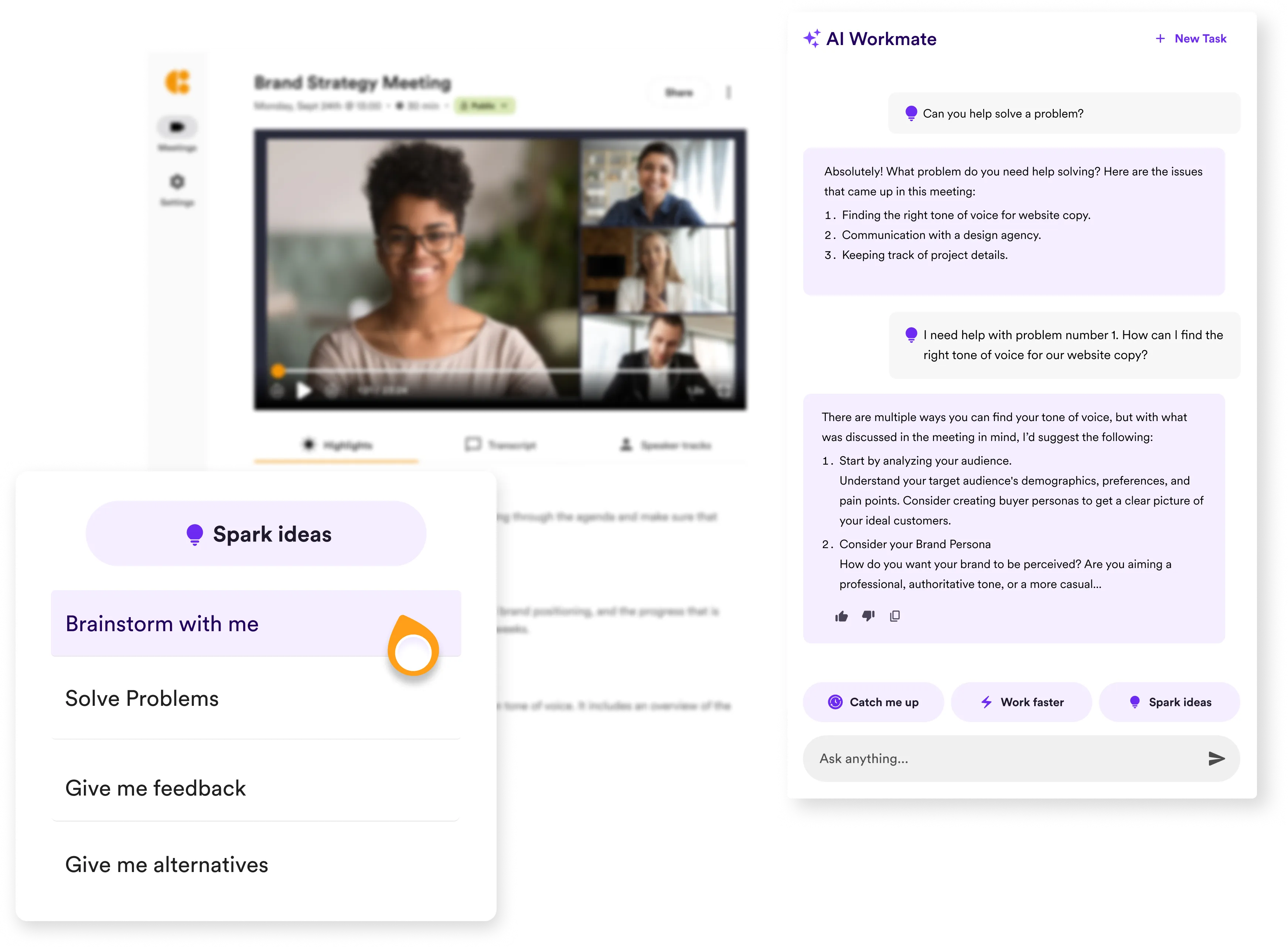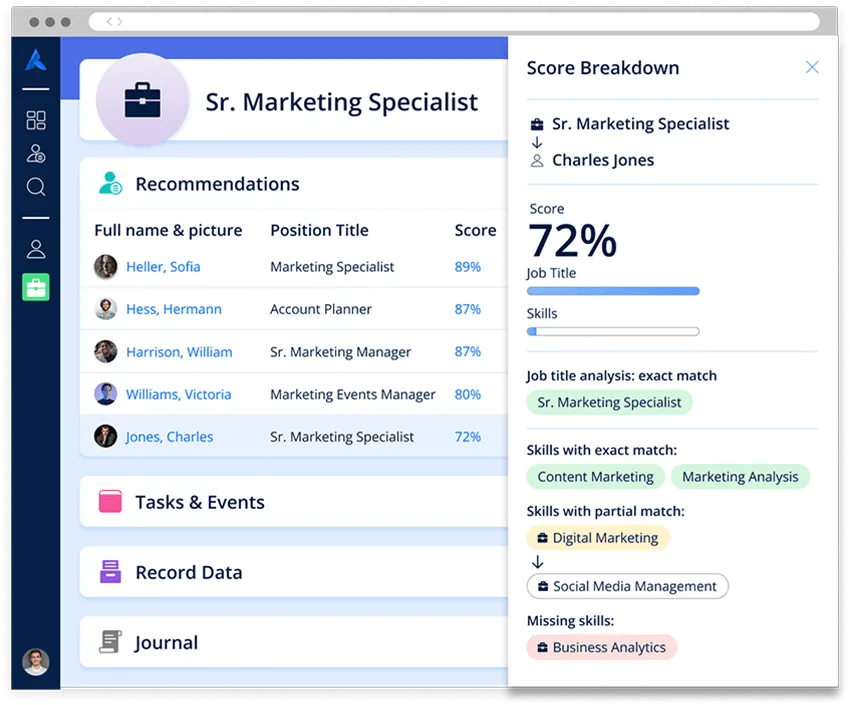The Full Guide to Pre-screening Interview

It's frustrating to spend hours interviewing a whole pool of candidates without ending with a right fit.
What if you could avoid this?
A well-executed pre-screening interview can help you do just that.
In this article, we’ll guide you through everything you need to know about pre-screening interviews, from the right questions to ask, to spotting red flags, and how to streamline the entire process.
What's the purpose of a pre-screening interview?
A pre-screening interview is a quick call, usually 15 to 20 minutes long, that enables you to verify important details of your candidate. It helps assess wheter it's worth to conduct a full interview process with a candidate, by filtering out those who don’t meet the basic requirements for the job.
By conducting this initial interview :
- You immediately reduce the number of candidates to focus on. You can quickly determine if the candidate’s background aligns with the job.
- You have the opportunity to evaluate the candidate’s communication style and personality outside of theire resume. If they’re vague or seem uninterested, you’ll know right away that they might not be the right fit for your team.
- You get a clear understanding of the candidate’s availability. If you need someone to start immediately but they have a long notice period, you’ll know early that they might not be a fit for your timeline.
- You can also clarify any questions they might have about the role to make sure there’s no confusion later.
Dos and Don'ts in a Pre-Screening Interview

When conducting a pre-screening interview, it's important to follow some best practices to ensure that you gather the information you need while creating a positive experience for the candidate. Here are the dos and don’ts to keep in mind.
Dos:
- Be clear and concise: Start the call by introducing yourself, the company, and briefly explaining the role. This sets the right tone and ensures the candidate knows exactly why you're reaching out. Time is valuable, so keep the conversation focused on key points like their experience, availability, and salary expectations. This keeps the call efficient for both sides.
- Standardize your questions: Having a set list of questions for all candidates is crucial. It ensures fairness and consistency, allowing you to compare responses across candidates more easily. Ask about their relevant experience, why they’re interested in the role, and their understanding of your company. This will give you the information you need to make a quick judgment on their fit.
- Create an open dialogue: Encourage the candidate to ask questions and elaborate on their experiences. You’re not just looking for someone with the right skills, but also someone who is engaged and interested in your company. Showing that you’re open to their questions fosters a two-way conversation, rather than a one-sided interrogation.
- Sell the role: Remember that a pre-screening interview is also a chance for you to market the job and your company to the candidate. Highlight the benefits of the position and what makes your company a great place to work. This is especially important when dealing with hard-to-find talent.
Don’ts:
- Don’t rush the process: While pre-screening interviews are usually short, avoid rushing through them. If the conversation feels rushed, you might miss important details or leave the candidate with a bad impression of your company.
- Don’t ignore red flags: If a candidate gives vague answers, seems unprepared, or lacks enthusiasm, take note. These could be early signs that the candidate isn’t a great fit for the role or company.
- Don’t skip the follow-up: Always end the call by explaining the next steps in the hiring process. Whether the candidate moves forward or not, a brief explanation shows professionalism and leaves a positive impression of your company.
Examples of Questions to Ask in a Pre-Screening Interview

In a pre-screening interview, asking the right questions is essential to gather key information about your candidates. These questions should help you assess the candidate’s motivation, skills, availability, and fit for the role. Below are some examples of questions you can ask, divided into important categories.
1. Interest and Motivation
Start by exploring why the candidate is interested in your company and the specific role. This helps you gauge their level of commitment and enthusiasm.
Example questions:
- "What motivated you to apply for this role?"
- "What excites you about working for our company?"
2. Availability
Knowing a candidate’s availability is crucial, especially if you need someone to start quickly. It’s better to find out early if there’s a mismatch in timing.
Example questions:
- "When would you be available to start?"
- "Are you currently interviewing with other companies?"
3. Salary Expectations
Discussing salary early helps prevent wasting time later in the process. If the candidate’s expectations don’t align with what you can offer, it’s better to know sooner rather than later.
Example questions:
- "What are your salary expectations for this role?"
- "Is there a specific range you are looking for?"
4. Skills and Experience
Understanding the candidate’s background and how it aligns with the role is crucial. These questions help verify if they have the necessary qualifications.
Example questions:
- "Can you tell me about your previous experience in a similar role?"
- "What skills do you bring to this position that make you a strong candidate?"
5. Fit for the Role
Assessing how well the candidate fits with your company culture and the team they’ll work with is essential. These questions will give you a sense of their personality and work style.
Example questions:
- "How do you typically work within a team environment?"
- "What kind of work environment do you thrive in?"
How to Know if a Candidate Should Move to the Next Stage

How do you know if a candidate is worth it ? Here’s a list of positive and negative signs to evaluate a candidate’s fitness :
Positive Signs to Look For
- Clear Interest in the Role and Company: If the candidate has done their homework and can clearly explain why they are excited about your company and the position, this is a strong indicator. Candidates who ask thoughtful questions about your business or the job responsibilities show genuine interest and motivation.
- Relevant Experience and Skills: A good candidate will not only highlight their relevant experience but will also make clear connections between their past roles and the responsibilities of the position they’re applying for. Listen for specific examples where they have demonstrated the skills required for the job
- Good Communication and Enthusiasm: Pay attention to how the candidate communicates. Do they answer your questions clearly and confidently? Do they seem enthusiastic about the role? A positive attitude and energy during the conversation are good signs that the candidate will bring the same mindset to the job.
- Alignment of Expectations: If the candidate’s salary expectations, availability, and understanding of the job align with what your company can offer, this indicates a good fit. Candidates who are flexible or realistic about these aspects are more likely to move forward smoothly.
Red Flags to Watch For
- Vague or Evasive Responses: If the candidate struggles to provide clear answers or seems to avoid certain questions, it could indicate a lack of preparation or transparency. This is especially concerning if it happens when discussing gaps in their resume, job transitions, or salary expectations.
- Lack of Enthusiasm: A candidate who doesn’t seem particularly interested in the role or your company is a red flag. If they appear disengaged during the conversation, it may indicate that they’re applying for multiple roles without a specific focus, or worse, they might not be motivated if hired.
- Misalignment of Expectations: If the candidate’s expectations around salary, benefits, or job responsibilities are far off from what you can offer, it’s better to identify this early. A significant gap here can lead to wasted time later in the process.
Automate Your Pre-Screening Process : Noota

After completing your pre-screening interviews, it’s essential to organize and analyze the data you've gathered. This is where tools like Noota can significantly streamline your process, saving you time and improving the accuracy of your evaluations :
- Automatic Transcription : During pre-screening interviews, you don’t want to lose focus by frantically taking notes. With Noota, you can transcribe the entire conversation automatically, ensuring that every word is captured without you needing to manually document the discussion.
- Structured Summaries: One of the biggest challenges after a round of pre-screening interviews is comparing multiple candidates. Noota can generate structured summaries for each interview, allowing you to quickly see the key points. Having all the data organized in a consistent format simplifies your decision-making process.
- Conversation Analysis : Noota’s conversation analysis feature takes the evaluation a step further by identifying patterns in the conversation, such as the candidate’s level of enthusiasm, their communication style, and key skills they mention.
- Improved Candidate Experience : With automated follow-ups and easy access to structured summaries, you can provide candidates with quicker feedback, improving their overall experience.
Want to make more informed decisions ? Try Noota for free.
Leverage your Interview Data
AI interview notes, scorecard, follow-up, ATS integration, and more...
Related articles

Forget note-taking and
try Noota now
FAQ
In the first case, you can directly activate recording as soon as you join a videoconference.
In the second case, you can add a bot to your videoconference, which will record everything.
Noota also enables you to translate your files into over 30 languages.

.svg)
.svg)
.webp)

.png)


.svg)
